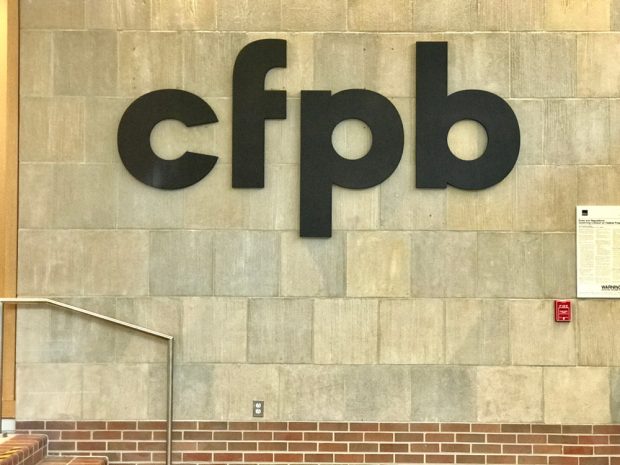 CFPB headquarters. (Source: Shutterstock)
CFPB headquarters. (Source: Shutterstock)
Credit union trade groups credited the CFPB for its release Monday of a policy statement designed to clarify how it would enforce Congress' prohibition of businesses using "abusive practices" to gain advantage of consumers.
The mandate is part of the 2010 Dodd-Frank Act. While its prohibitions against "deceptive" and "unfair" practices had existed under previous laws and had a long history of enforcement precedents, the prohibition against "abusive practices" was new.
Recommended For You
Inclusiv, which represents Community Development Credit Unions, praised the CFPB for its efforts to "vigorously enforce" prohibitions against deceptive, unfair and abusive practices.
NAFCU and CUNA gave a thumbs up to the CFPB on the intent of the law and the agency's attempt to clarify enforcement practices, but said they will continue to seek more detail.
The policy statement released Monday by the CFPB said the "abusive practices" prohibition was added because previous laws did not adequately address many of the practices that led to the Great Recession.
"The 2007-2008 financial crisis tested U.S. consumer protection laws, government watchdogs, and the ability of the existing authorities to address the predatory lending that was a root cause of the collapse," the CFPB statement said.
"The financial crisis was set in motion by a set of avoidable interlocking forces – but at its core were mortgage lenders profiting (by immediately selling on the secondary market) on loans that set people up to fail because they could not repay. Millions of Americans saw their home values drop and their jobs eliminated as a result of forces largely out of their control," it said.
 Rohit Chopra
Rohit Chopra CFPB Director Rohit Chopra said the guidance is intended to provide "an analytical framework to help federal and state agencies hold companies accountable when they violate the law and take advantage of families."
It was based in part on 43 cases alleging abusive conduct the CFPB has brought since the law was passed. They include claims of predatory student lending practices and charging consumers costly surprise overdraft fees.
The CFPB statement described how abusive conduct generally includes obscuring important features of a product or service or leveraging certain circumstances –including gaps in understanding, unequal bargaining power or consumer reliance – to take unreasonable advantage.
"In particular, the statement describes how the use of dark patterns, set-up-to-fail business models like those observed before the mortgage crisis, profiteering off captive customers, and kickbacks and self-dealing can be abusive," the CFPB news release said.
 James Akin
James Akin NAFCU Regulatory Affairs Counsel James Akin said the guidance is "a step in the right direction" toward NAFCU's attempts to increase transparency on enforcement.
"Although the guidance provides much-needed examples and descriptions of the types of acts or practices that might be considered abusive, the bureau continues to leave the door open to use the abusiveness prong of UDAAP as a catch-all, and NAFCU will continue to urge the bureau to provide clear rules of the road for credit unions," Akin said.
Akin said NAFCU will submit further comment to the CFPB by its July 3 deadline for public comment.
 Alex Monterrubio
Alex Monterrubio Alexander Monterrubio, CUNA's deputy chief advocacy officer for regulatory affairs, also said the statement was "a small step" toward clarifying the CFPB's interpretation of abusive practices.
"But, without more practical guidance, credit unions will continue to be tasked with intuiting the real world contours of prohibited acts or practices through the bureau's enforcement actions," Monterrubio said.
Cathie Mahon, president/CEO of Inclusiv, said the CFPB statement "underscores the critical role the CFPB plays in ensuring that people have access to safe, non-exploitative loans and financial services."
 Cathie Mahon
Cathie Mahon "Community Development Credit Unions have a demonstrated commitment to meeting consumer credit and financial services needs with safe and affordable financial services, and Inclusiv applauds the CFPB for its efforts to vigorously enforce its authority to prohibit unfair, deceptive, or abusive act or practices in the financial services marketplace," Mahon said.
© 2025 ALM Global, LLC, All Rights Reserved. Request academic re-use from www.copyright.com. All other uses, submit a request to [email protected]. For more information visit Asset & Logo Licensing.








